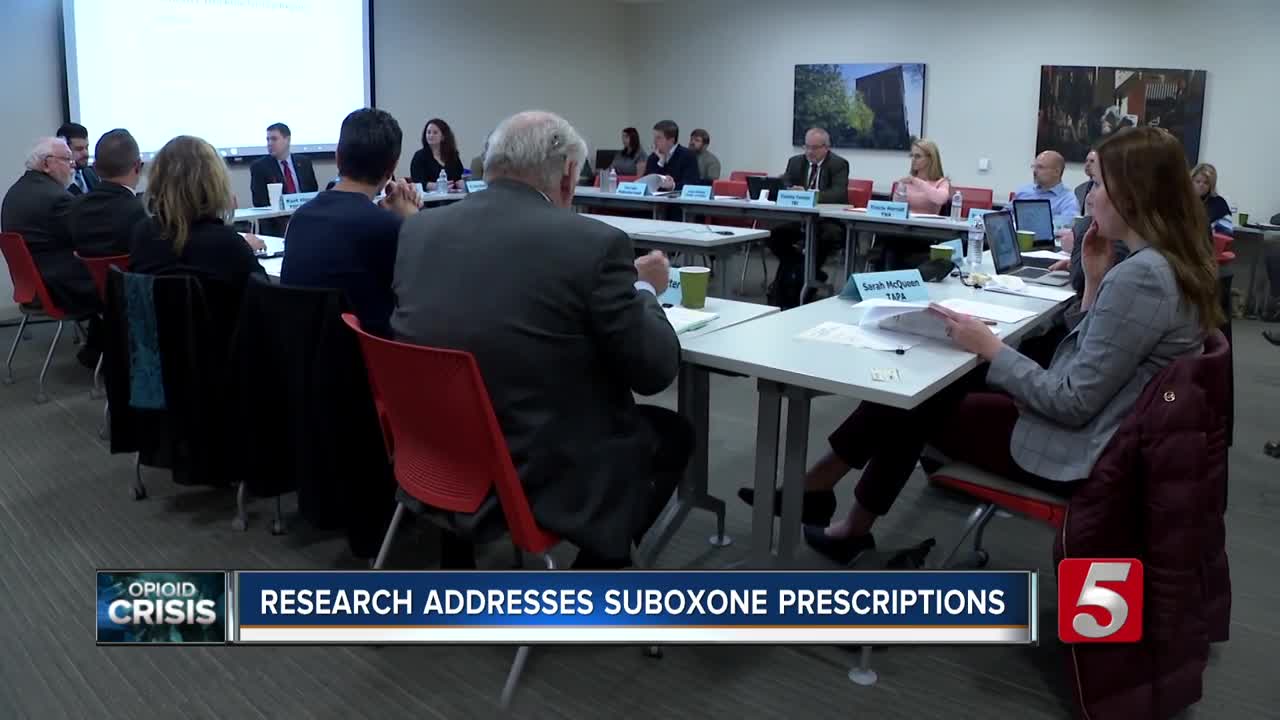NASHVILLE, Tenn. (WTVF) — There are concerns of abuse and diversion for an increasingly popular form of opioid treatment while there are considerations if more people should be able to prescribe it.
Also known by the brand name Suboxone, buprenorphine is a partial opioid that can help phase out cravings and reverse the effects of other opiates. The drug can come in the form of dissoluble tablets or strips.
However, the Tennessee Bureau of Investigation (TBI) said buprenorphine is one of the most diverted conrolled substances in the state. Seizures have increased in recent years, and there are worries that it contributes to other criminal activity.
The Tennessee Department of Correction (TDOC) also reports that there is a troubling number of drug seizures and positive drug tests involving buprenorphine in its prisons.
In most of 2018, TDOC said there were 2480 buprenorphine strips seized in 14 prisons including Riverbend Maximum Security Institution in Nashville, more than pills. It came second to marijuana for the cause of positive drug tests at a total of 1,705.
Medical professionals and patients say it can be very effective since a prescription is typically paired with additional therapy like counseling. State health officials said the lifesaving medication is largely untapped.
Of the 849 physicians with proper qualifications from the DEA, 586 of them prescribed buprenorphine for medicine-assisted treatment purposes from September 1, 2017 through August 31, 2018. Of the 586 physicians, less than 10 percent prescribed to an average of number of patients each month. Reasons include physicians report only providing the services part time, lack of prescibers support and many just receive certification as part of a required medical training program.
Lawmakers can now look into the possibility of allowing people other than doctors to prescribe the drug.
A group of experts from 15 different organizations including the TBI, Tennessee Department of Health andTennessee Medical Association is one step closer to completing a report on the impacts of allowing nurse practitioners and physician assistants to prescribe buprenorphine.
The Buprenorhpine Prescribing Authority Working Group met for the final time on Wednesday to tweak its 16-page report before submitting it to commissioners and state legislators. Last year, Governor Bill Haslam directed the Tennessee Department of Mental Health and Substance Abuse Service to create the group to explore what it would mean to increase access to buprenorphine.
"We will develop a report for the legislature to expand on what's going to happen should the legislature decide to expand the prescribing authority. This would mark a major policy change for the state," said TDMHSAS Chief Pharmacist Dr. Wesley Geminn.
The group found that it would increase the number of buprenorphine prescribers but it could potentially have a negative impact on the quality of care.
While the report is still being finalized, the draft mentions particular recommendations for lawmakers include taking a cautious approach, increased monitoring, consistencies between nurse practitioners and physician assistants and limitations to critical practice settings.
"There are some organizations that may not be in favor of expanding it but they do understand the need and they want to make sure there is proper controls in place so we don't have more diversion or decreased quality in care," added Geminn.
"I think more providers are needed to give this medication and if they're propelry trained to give this medication and monitor these patients, I don't see why that would be a problem," said Saha.
Once the report is completed, it would be sent to commissioners and the House and Senate Health Committees.



